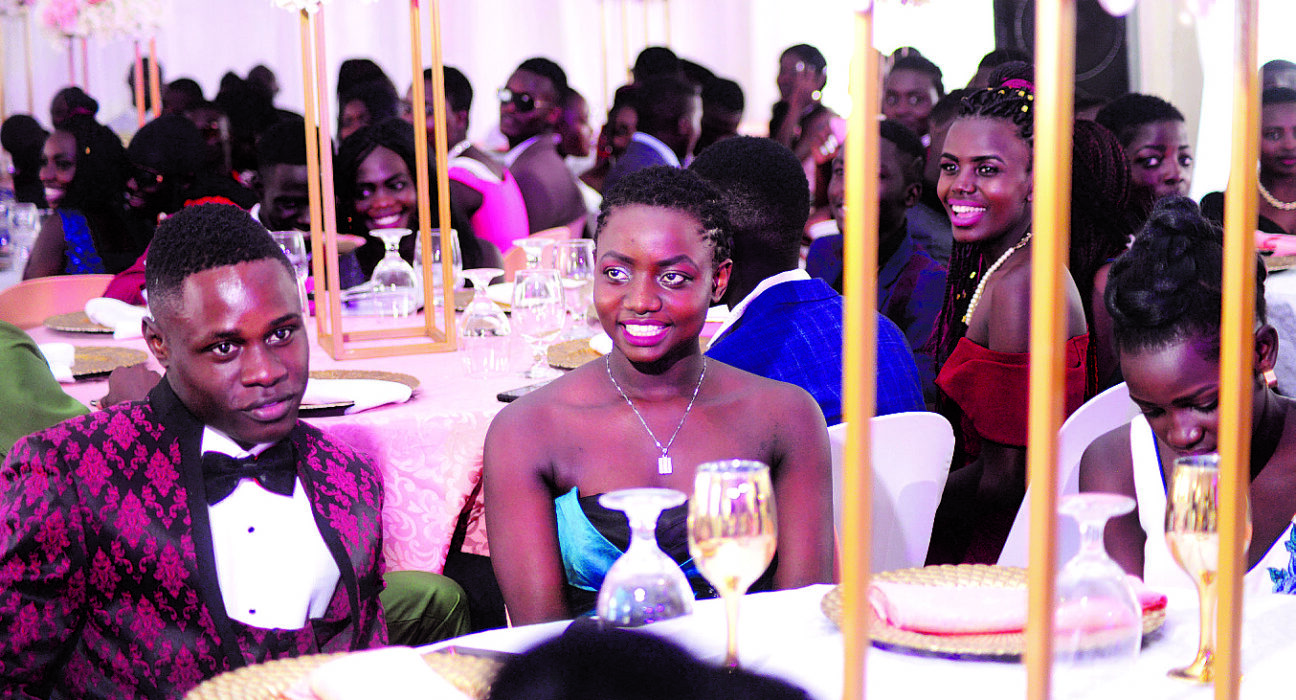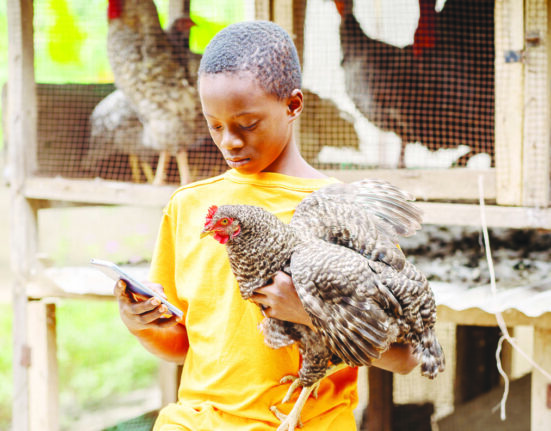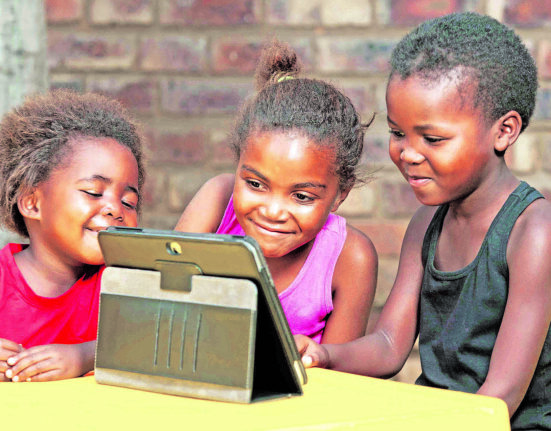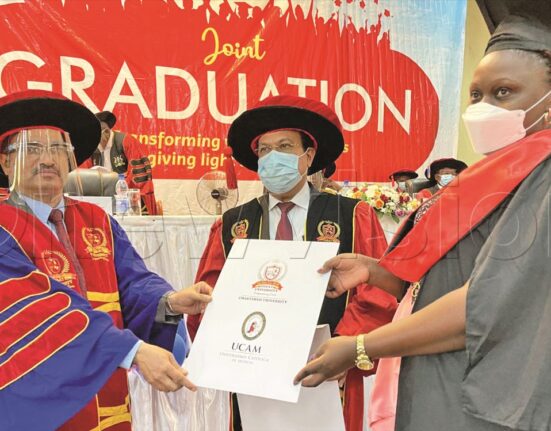This article was first published in the New Vision on April 7, 2021
By Conan Busingye and Jackie Achan
Amid unprecedented changes due to COVID-19, schools have changed the way they do things right from parties, associating at the school campus, parents’ visits and school exchange programmes.
Never would a secondary school student take a photo at a party wearing a mask or even be stopped from a dance party, if it was not for COVID-19. But, with COVID-19, many situations or way of doing things can no longer be amusing.
Apart from academics, the standard operating procedures (SOPs) have also changed the way students live for their protection against COCID-19.
The Government expects, “students to maintain physical and social distance of at least two metres between persons while on the school premises”.
“An assembly should be discouraged and children can be addressed in a classroom setting,” adds the SOPs which were released early this year.
Schools are also barred from any recreational or sports activities, which involve close physical contact — football, wrestling, rugby, netball and promote activities that allow social distancing.
Schools were also ordered to stop any non-essential group sessions (for example clubs or activities before or after school).
Ministry’s Position
The state minister for higher education, Dr John Chrysostom Muyingo, says: “Much as the SOPs can never cover all aspects of life, they indirectly cover all issues that pertain to the child’s life. The schools are expected to find time for students to rest and relax, as long as they do not go against the set SOPs.”
As the old adage goes, “work without play makes Jack a dull boy.”
Indeed, most schools agree that they need to create time for students to relax amidst the set SOPs. Some schools play movies for students, others organise smaller class activities such as debates, or invite greater personalities in society to address their students. Other schools have replaced parties with photoshoots for students on the red carpet.
Entertainment Makes Children Excel
The reality is that there is little time to compensate for lost time during the closure of schools, the headteacher of St Mary’s College Kisubi, Bro. Deodati Aganyira, says.
He says teaching and testing is priority.
“We focus on topical tests and mark. Most times students are engaged.
“We were asked to have a crash programme to compensate for suspended school activities. So, we have fewer co-curricular activities.
However, to keep our students meaningfully occupied without having to be crowded in class, we allow them to take short breaks. The students go jogging. Teachers take each stream to do some jogging,” Aganyira says. He says the school encourages co-curricular activities that do not allow socialising. For example, a student can go jogging alone.
The students also engage in indoor games, including tennis and badminton, which do not attract big groups.
“Games like football and rugby attract big groups that can be risky and spread the coronavirus, should anyone have it. Besides, we encourage wearing of masks.
“With tennis or badminton, you find about two to four students playing and they are on opposite sides and well-spaced. Luckily, we have many playgrounds and a big compound to engage in activities that kill boredom,” the headteacher says.
Aganyira adds that what a school does to keep their students gainfully engaged outside of the classroom while remaining safe from the coronavirus depends on the culture of individual schools.
“What schools have to do is follow SOPs, which I think schools have done. We have not had casualties; we have to be patient and make sure 2021 is completed, until the situation comes back to normal,” Aganyira says.
The headteacher of Balibaseka Secondary School Kakiri in Wakiso district, Rebecca Bisaaso, says the current learning timetable is a little hectic and has left children fatigued.
“Students sit in class the whole week and are not allowed time for co-curricular activities. We had started engaging students in playing volleyball, but realised sometimes they would collide as they played. It was crowded and not safe,” she explains.
“We have introduced aerobics during the weekend for our students. We take them to the field, put music and they exercise and dance to loosen the mind and stay fit,” she says However, Bisaaso is worried about the big number of students. Theirs is a Universal Secondary Education school. Children are many.
“Luckily, Senior Four students are leaving this week, and we shall have more space. But if all the students return to school; the spacing will be limited. This might also complicate after-class activities,” Bisaaso says.
Schools Speak Out
School directors and headteachers say students need to rest, cut back on learning fatigue and stress through schools’ relaxing activities. Some argue that entertainment is a pre-requisite to academic excellence.
In almost all schools, end of year parties are no more; unlike in the past when students would go for school visits, known in their circles as ‘socials’.
The director for Janan Luwum schools and chairperson of Proprietors of Private Schools Association says: “We just have to get used to the new way of life.
“Schools all over the country need to find a way of keeping students entertained, but also focused on their academic studies. But I ask schools to pay attention to their studies,” Kironde says.
He says schools should try to keep entertainment and rest for students, “if they are to avoid getting them stressed”.
Kironde says even having concerts or entertainment shows at school during this COVID-19 will help students do better in examinations and their studies.









Leave feedback about this